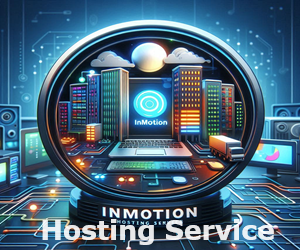The Birth of EIG
EIG was founded in 1997 with the goal of becoming a major player in the web hosting industry. Initially, EIG focused on acquiring small to medium-sized hosting companies, quickly expanding their portfolio. This aggressive acquisition strategy allowed them to grow rapidly, but it also laid the foundation for many of the issues that would later plague their services.
EIG’s Business Model
EIG’s business model revolves around acquiring hosting companies and integrating them into their system. This strategy prioritizes growth over quality, often leading to a decline in service for the acquired companies. The primary goal is to maximize profits, often at the expense of customer satisfaction.
Major Acquisitions by EIG
EIG has acquired several well-known web hosting companies, including Bluehost, HostGator, and iPage. Initially, these companies offered high-quality services, but after being acquired by EIG, customers often experienced a noticeable decline in service quality.
Decline in Service Quality
One of the most significant issues with EIG-owned companies is the decline in service quality. Customers frequently report problems with customer service, technical issues, and extended periods of downtime. These issues can severely impact small businesses and individuals who rely on their websites for income.
Customer Feedback and Reviews
Customer reviews and feedback paint a grim picture of EIG’s services. Common complaints include poor customer service, slow loading times, frequent outages, and unresponsive support teams. Many customers feel trapped, having signed long-term contracts with EIG-owned companies.
EIG’s Reputation in the Industry
Industry experts often criticize EIG for their poor service and business practices. Comparisons with competitors reveal that EIG-owned companies consistently lag in terms of performance, reliability, and customer satisfaction.
The Impact of EIG’s Practices on the Market
EIG’s aggressive acquisition strategy has led to market consolidation, reducing competition in the web hosting industry. This consolidation has long-term effects, including higher prices and fewer choices for consumers, as well as stifled innovation.
Why You Should Avoid EIG Services
There are several reasons to avoid EIG-owned services. Firstly, EIG prioritizes profit over service quality, resulting in poor customer experiences. Additionally, their pricing is often high, with hidden fees and upselling tactics that can catch customers off guard.
Alternative Web Hosting Providers
Fortunately, there are many reliable alternatives to EIG-owned companies. Providers like SiteGround, A2 Hosting, and DreamHost offer superior service, better performance, and more transparent pricing. These companies prioritize customer satisfaction and innovation, making them excellent choices for web hosting.
How to Choose a Reliable Web Hosting Provider
When choosing a web hosting provider, consider factors such as uptime, customer service, pricing, and features. Research and read reviews to avoid falling into the trap of poor service. Look for providers with a proven track record of reliability and customer satisfaction.
Case Study: A Business Affected by EIG
Consider the case of a small e-commerce business that relied on HostGator for web hosting. After EIG acquired HostGator, the business experienced frequent downtime, slow loading times, and poor customer support. This led to a loss of revenue and customers. Ultimately, the business switched to a different hosting provider, but not without significant losses.
After EIG acquired HostGator, they would eliminate security measures that kept hackers out and then try to charge you to add these security protections they removed back in.
The Future of Web Hosting Without EIG
The web hosting industry is evolving, with new and innovative companies entering the market. These companies focus on providing high-quality services, transparency, and customer satisfaction. The future of web hosting looks promising, with more choices and better services available for consumers.
EIG List of Companies They Own as of This Writing
Endurance International Group (EIG) owns numerous web hosting platforms and related services. Below is a list of some of the most notable ones you should take caution before subscribing or completely avoid:
Web Hosting Platforms Owned by EIG
- Bluehost
- HostGator
- iPage
- FatCow
- JustHost
- Domain.com
- A Small Orange
- HostMonster
- Site5
- Arvixe
- WebHost4Life
- PowWeb
- PureHost
- EasyCGI
- VPSLink
- StartLogic
- NetFirms
- IX Web Hosting
- MyDomain
- Dotster
- BigRock
- FastDomain
- ApolloHosting
- LogicBoxes
- ResellerClub
- Spry
- BizLand
Additional Services and Tools Owned by EIG
- MOJO Marketplace – Website themes and plugins marketplace
- Constant Contact – Email marketing service
- Sitelio – Website builder tool
- SiteBuilder.com – Website builder tool
- IM Creator – Website builder tool
- SEO Gears – SEO tools and services
- SinglePlatform – Business listing service
- MySocialSuite – Social media management tool
These platforms and services have been integrated into EIG’s extensive network, often resulting in a significant change in service quality and customer experience post-acquisition.
Conclusion
EIG’s history is marked by a relentless focus on growth and profit, often at the expense of service quality and customer satisfaction. This strategy, characterized by the acquisition of numerous web hosting companies, has led to a significant degradation in the services provided by these once-reputable brands. Customers have repeatedly reported issues such as poor customer support, frequent downtimes, and slower website performance, which can severely impact businesses that rely on their online presence.
By understanding the issues associated with EIG, you can make more informed decisions about your web hosting needs. The impact of EIG’s practices serves as a cautionary tale about the risks of choosing a provider solely based on their size or brand recognition. It’s crucial to look beyond the surface and consider the actual performance and reputation of the hosting service.
Choosing reliable alternatives is key to ensuring a better web hosting experience. Providers like InMotion, SiteGround, A2 Hosting, and DreamHost are known for their commitment to customer satisfaction, innovative features, and robust performance. These companies focus on delivering high-quality services tailored to meet the needs of their users, rather than just maximizing profits.
In conclusion, avoiding EIG-owned companies can spare you from the common pitfalls associated with their services. Opt for hosting providers that prioritize your needs, offer exceptional customer service, and maintain a strong track record of reliability and performance. By doing so, you can secure a stable and efficient online presence, crucial for the success and growth of your business or personal website.
FAQs (Frequently Asked Questions)
Q1: What is EIG?
A1: EIG, or Endurance International Group, is a company that owns numerous web hosting providers. They are known for acquiring smaller hosting companies and integrating them into their system.
Q2: Which companies are owned by EIG?
A2: EIG owns several well-known hosting companies, including Bluehost, HostGator, iPage, and many others.
Q3: Why is EIG’s service quality poor?
A3L EIG focuses on maximizing profits through acquisitions, often leading to a decline in service quality for the companies they acquire. Issues such as poor customer service, frequent downtime, and technical problems are common.
Q4: How can I find a good web hosting provider?
A4: Research and read reviews of different hosting providers. Look for companies with high uptime, excellent customer service, transparent pricing, and positive customer feedback.
Q5: What should I do if I’m currently with an EIG-owned company?
A5: Consider switching to a different hosting provider. Research and choose a company that offers better service and reliability. Make sure to back up your website before making the switch.
Q6: What is the primary business strategy of EIG?
A6: EIG’s primary business strategy revolves around acquiring smaller web hosting companies and integrating them into its existing portfolio. This approach focuses on expanding its market share quickly but often leads to a decline in service quality for the acquired companies due to standardized processes and cost-cutting measures.
Q7: How has EIG’s acquisition strategy impacted the web hosting industry?
A7: EIG’s aggressive acquisition strategy has led to significant market consolidation, reducing competition. This has often resulted in higher prices and lower service quality across the industry, as fewer companies compete on innovation and customer satisfaction.
Q8: Are there any well-known brands that were negatively impacted by EIG’s acquisition?
A8: Yes, several well-known brands such as HostGator, Bluehost, and iPage have been reported to suffer from a decline in service quality, increased downtime, and poor customer support after being acquired by EIG.
Q9: What alternatives do small businesses have to EIG-owned hosting services?
A9: Small businesses can consider alternatives like SiteGround, A2 Hosting, DreamHost, and InMotion Hosting. These providers are known for their reliable service, excellent customer support, and commitment to innovation, making them better choices for hosting needs.
Q10: How can I transfer my website from an EIG-owned host to a new provider?
A10: Transferring your website involves several steps:
- Backup Your Website: Ensure you have a complete backup of your site files and databases.
- Choose a New Host: Select a reliable hosting provider based on your needs.
- Migrate Your Files: Use FTP or a migration tool provided by the new host to transfer your files.
- Update DNS Settings: Point your domain’s DNS to the new host’s servers.
- Test Your Website: Ensure everything is working correctly on the new host before canceling your old service. Many hosting providers offer free migration services to assist with the process.


 Have you ever experienced the frustration of a slow, unreliable website? If so, you know how crucial a good web
Have you ever experienced the frustration of a slow, unreliable website? If so, you know how crucial a good web 













